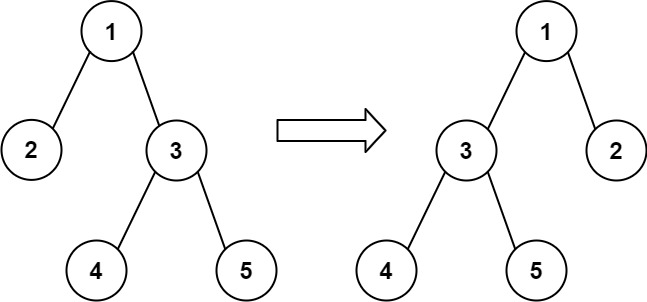2021-03-29 Daily-Challenge
Today I have done Search Suggestions System and leetcode's March LeetCoding Challenge with cpp.
Search Suggestions System
Description
Given an array of strings products and a string searchWord. We want to design a system that suggests at most three product names from products after each character of searchWord is typed. Suggested products should have common prefix with the searchWord. If there are more than three products with a common prefix return the three lexicographically minimums products.
Return list of lists of the suggested products after each character of searchWord is typed.
Example 1:
Input: products = ["mobile","mouse","moneypot","monitor","mousepad"], searchWord = "mouse"
Output: [
["mobile","moneypot","monitor"],
["mobile","moneypot","monitor"],
["mouse","mousepad"],
["mouse","mousepad"],
["mouse","mousepad"]
]
Explanation: products sorted lexicographically = ["mobile","moneypot","monitor","mouse","mousepad"]
After typing m and mo all products match and we show user ["mobile","moneypot","monitor"]
After typing mou, mous and mouse the system suggests ["mouse","mousepad"]
Example 2:
Input: products = ["havana"], searchWord = "havana"
Output: [["havana"],["havana"],["havana"],["havana"],["havana"],["havana"]]
Example 3:
Input: products = ["bags","baggage","banner","box","cloths"], searchWord = "bags"
Output: [["baggage","bags","banner"],["baggage","bags","banner"],["baggage","bags"],["bags"]]
Example 4:
Input: products = ["havana"], searchWord = "tatiana"
Output: [[],[],[],[],[],[],[]]
Constraints:
1 <= products.length <= 1000- There are no repeated elements in
products. 1 <= Σ products[i].length <= 2 * 10^4- All characters of
products[i]are lower-case English letters. 1 <= searchWord.length <= 1000- All characters of
searchWordare lower-case English letters.
Solution
I've solved the problem in my interview. But that problem don't limit return amount.
class Solution {
public:
vector<vector<string>> suggestedProducts(vector<string>& products, string searchWord) {
sort(products.begin(), products.end());
vector<vector<string>> answer;
auto begin = products.begin();
auto end = products.end();
for(int i = 0; i < searchWord.length(); ++i) {
auto cmp = [=](string a, string b) {
return a[i] < b[i];
};
auto newBegin = lower_bound(begin, end, searchWord, cmp);
auto newEnd = upper_bound(begin, end, searchWord, cmp);
begin = newBegin;
end = newEnd;
if(newEnd - newBegin > 3) newEnd = newBegin + 3;
if(newEnd - newBegin <= 0) break;
answer.push_back(vector<string>(newBegin, newEnd));
}
while(answer.size() < searchWord.length()) answer.push_back({});
return answer;
}
};
// Runtime: 32 ms, faster than 96.84% of C++ online submissions for Search Suggestions System.
// Memory Usage: 39.2 MB, less than 62.45% of C++ online submissions for Search Suggestions System.
trie tree looks great, but actually, cost of reconstructing string is huge.
March LeetCoding challenge 29
Description
Flip Binary Tree To Match Preorder Traversal
You are given the root of a binary tree with n nodes, where each node is uniquely assigned a value from 1 to n. You are also given a sequence of n values voyage, which is the desired pre-order traversal of the binary tree.
Any node in the binary tree can be flipped by swapping its left and right subtrees. For example, flipping node 1 will have the following effect:

Flip the smallest number of nodes so that the pre-order traversal of the tree matches voyage.
Return a list of the values of all flipped nodes. You may return the answer in any order. If it is impossible to flip the nodes in the tree to make the pre-order traversal match voyage, return the list [-1].
Example 1:

Input: root = [1,2], voyage = [2,1]
Output: [-1]
Explanation: It is impossible to flip the nodes such that the pre-order traversal matches voyage.
Example 2:

Input: root = [1,2,3], voyage = [1,3,2]
Output: [1]
Explanation: Flipping node 1 swaps nodes 2 and 3, so the pre-order traversal matches voyage.
Example 3:

Input: root = [1,2,3], voyage = [1,2,3]
Output: []
Explanation: The tree's pre-order traversal already matches voyage, so no nodes need to be flipped.
Constraints:
- The number of nodes in the tree is
n. n == voyage.length1 <= n <= 1001 <= Node.val, voyage[i] <= n- All the values in the tree are unique.
- All the values in
voyageare unique.
Solution
simulate traversal
code is not elegant...
class Solution {
bool traversal(TreeNode* root, vector<int>& voyage, vector<int>& answer, int &idx) {
if(!root) return true;
if(root->val != voyage[idx]) return false;
idx += 1;
if(root->left == nullptr && root->right == nullptr) return true;
if(root->left == nullptr) {
return traversal(root->right, voyage, answer, idx);
}
if(root->left->val != voyage[idx]) {
if(!traversal(root->right, voyage, answer, idx) || !traversal(root->left, voyage, answer, idx)) {
return false;
}
answer.push_back(root->val);
return true;
}
return traversal(root->left, voyage, answer, idx) && traversal(root->right, voyage, answer, idx);
}
public:
vector<int> flipMatchVoyage(TreeNode* root, vector<int>& voyage) {
vector<int> answer;
int idx = 0;
if(traversal(root, voyage, answer, idx)) return answer;
return {-1};
}
};